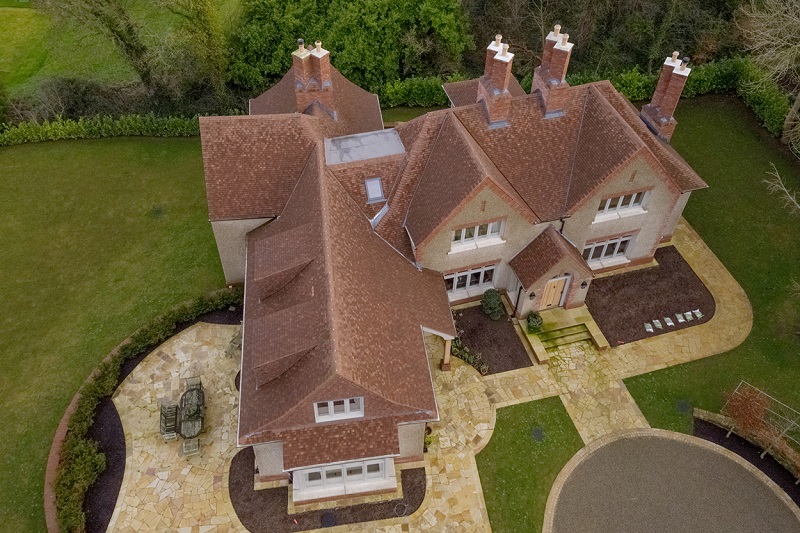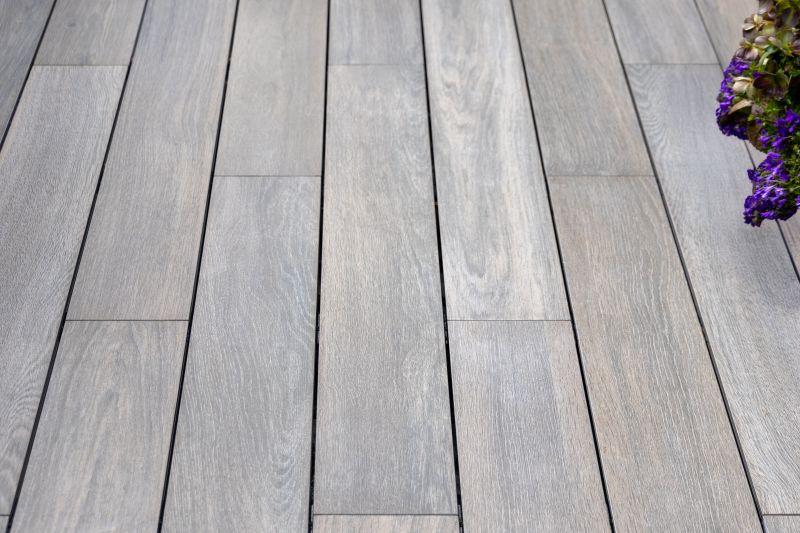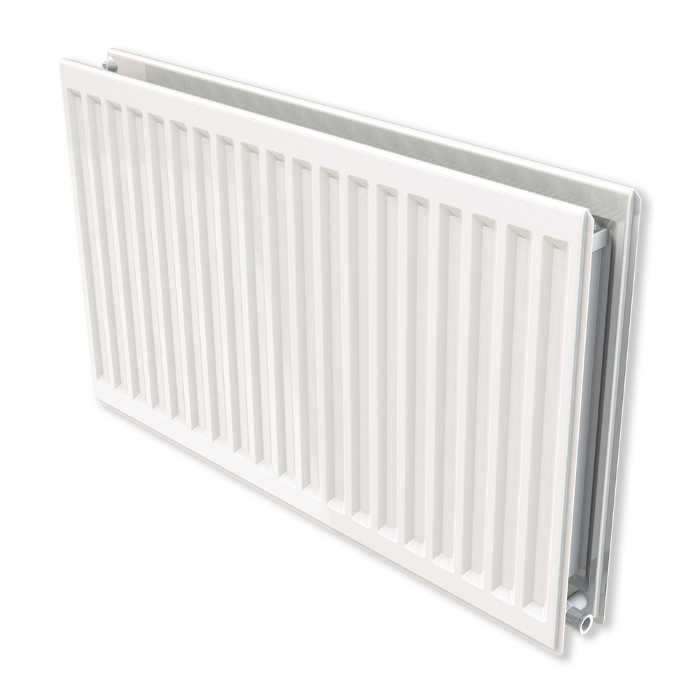Award-winning architect Des Ewing, famous in Northern
Ireland for his part in the television show House of the Year,
chose the BMI Redland Heathland Ember plain tiles when he designed Hastings
House, a substantial property overlooking the Belfast Lough.
The BMI Redland Heathland Ember is a concrete plain
tile featuring variation in hanging length, irregular sides and subtle surface
texturing, finished with randomly applied fine sands.
The result is a tile that combines a natural weathered
character with the performance of a machine-made tile in an attractive and
cost-effective roofing product.
An additional benefit, when compared to its
handcrafted counterpart, is that it is a more sustainable product as it
incorporates a significantly lower level of embodied carbon.
“The roof is a strong feature of this house, so it was
essential that the roofing material chosen blended in with the overall design
and all the other finishes that are employed, particularly the brick and
render,” says Des.

“This roof tile ticked all the boxes and was also used
in decorative details that bind the entire house into a unified whole rather
than discrete elements attached to one another. These details include tiles on
the sides and front of dormers, shoulders of the chimneys and a soldier course
in the arch above the entrance.”
The 550m2 roof uses the
‘small element’ tile to achieve a complex overall roof shape that incorporates
varying rafter pitches, vertical cladding and unusual details such
as bellcast eaves and bonnet hips.
The roof pitch reduces as it slopes down, so there are
no straight rafters from ridge to eaves, while the building itself is in a
T-shape that is at an angle rather than square, adding to the complexity of the
design and installation.
There are four dormers, which necessitated vertical
cladding to their cheeks and careful detailing where the cladding met the main
roof. The cheeks of each dormer had four different perimeter pitches requiring
careful setting out and use of tile and half to avoid small cuts, which look
unsightly and are vulnerable to wind damage.
The bellcast eaves required careful setting
out to ensure even courses particularly where there were unequal pitches either
side. The roof also incorporates an area of flat roofing, so close co-operation
was required between the tradesmen to ensure correct weathering where the two
roofing systems met.
More practically, the fixing specification considered
the coastal site and the low pitch of the roof at the eaves. Both factors
increase the risk of wind lift, so the tiles were double-nailed every fourth
course – rather than every fifth as they would have been ordinarily – a result
of BMI UK & Ireland’s rigorous design approach.
Unlike the handmade clay tiles it mimics, the modern
BMI Redland Heathland Ember plain tile has undergone a robust programme of
testing, subjected to driving winds and high rains, whipped up by BMI UK &
Ireland’s engineers in the company’s testing wind tunnel. The tiles meet all
the requirements of BS
5534: 2014 Code of Practice for Slating and Tiling, providing they are installed in compliance with BMI
Redland’s fixing recommendations.




















